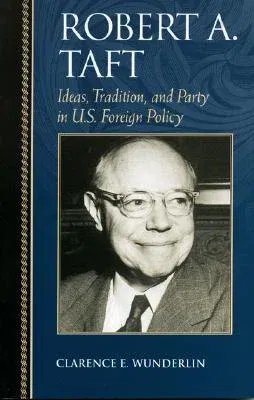Clarence E Wunderlin
(Author)Robert A. Taft: Ideas, Tradition, and Party in U.S. Foreign PolicyPaperback, 7 April 2005

Qty
1
Turbo
Ships in 2 - 3 days
In Stock
Free Delivery
Cash on Delivery
15 Days
Free Returns
Secure Checkout

Part of Series
Biographies in American Foreign Policy
Part of Series
Biographies in American Foreign Policy (Paperback)
Print Length
243 pages
Language
English
Publisher
Rowman & Littlefield Publishers
Date Published
7 Apr 2005
ISBN-10
0742544907
ISBN-13
9780742544901
Description
Product Details
Author:
Book Format:
Paperback
Country of Origin:
US
Date Published:
7 April 2005
Dimensions:
22.71 x
15.65 x
1.52 cm
ISBN-10:
0742544907
ISBN-13:
9780742544901
Language:
English
Location:
Lanham, MD
Pages:
243
Publisher:
Weight:
344.73 gm